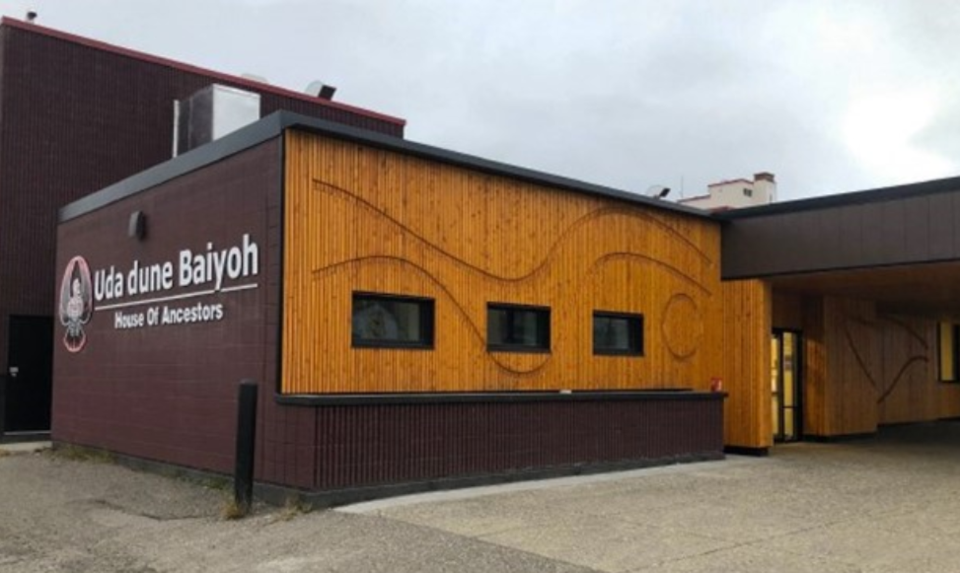Prince George city council on Wednesday agreed to support a proposal from the Lheidli T’enneh First Nation to increase its reserve land authority in the city.
If approved by the federal government, the application made by the Lheidli T’enneh council will result in a municipal tax exemption for band’s administration office at 150 Brunswick St. and the Uda Dune Baiyoh (House of Ancestors) Conference Centre at 355 Vancouver St., as well as the adjacent parking lot.
The property tax loss to the city would amount to $114,046.51 in 2024.
As of July 1, the tax levy on the administration building is $63,314.23. The Vancouver Street property brings the city $37,376 and the levy on the parking lot at 1664 4th Ave. is $13,356.
The city was notified March 19 in a letter from Indigenous Services Canada that the Lheidli T’enneh band council made a formal request that the land that encompasses the three properties in downtown Prince George would be added to the reserve.
According to the Indigenous Services Canada website, an addition to reserve:
- Contributes directly to advancing reconciliation and improving the treaty relationship;
- Improves community access to land and resources;
- Supports community and economic development initiatives for First Nations;
- Enables Canada to fulfill legal obligations established by specific claim settlement agreements.
The First Nation is responsible for negotiating agreements with local governments on such issues as service provisions, bylaw harmonization, tax considerations land-use planning and dispute resolution. Those agreements would be cost-neutral, meaning the city won’t incur any additional costs.
Eric Depenau, the city’s director of administrative services, told council at Wednesday's public meeting at city hall there are tax advantages for band members who work on reserve land. He said the Lheidli T’enneh would be eligible for federal programs for the maintenance and operation of those buildings because it would become the federal government’s responsibility to look after those properties.
He said the application could also potentially open up federal funding streams for activities on those two building sites.
Depenau said the bulk of the dialogue between the city and the Lheidli T’enneh to work out service agreements and how they apply to zoning and bylaw policies will happen this year.
Coun. Brian Skakun asked staff if there are any other unceded territories within local government boundaries which could result in future applications to obtain additions to reserve land.
“As far as we’re aware, this is the first addition to the Lheidli T’enneh reserve lands (which) have been established for quite some time,” responded city manager Walter Babicz.
“It is the first addition that we’re aware of and it is within the city boundaries,” he said. “This is all subject to federal legislation the federal government has enacted in terms of determining what the process is.
“The reality is that once lands are handed to reserve there’s no longer any property taxes levied. But also, municipalities are not required to provide any services to reserve lands, so it’s very unlikely this would proceed without service agreements being in place.”
Citing a request for more information and a meeting of city council with the Lheidli T’enneh to discuss the service agreements, Coun. Kyle Sampson proposed the city postpone sending a letter to Indigenous Services Canada which endorses the reserve application.
While he supports working with the Lheidli T’enneh to hash out an agreement, Sampson also wanted to delay a city staff recommendation of a meeting between Mayor Simon Yu and Lheidli T’enneh Chief Dolleen Logan to sign a letter of understanding, which would begin negotiations on the first addition to reserve lands in the modern era.
The recommendations subsequently passed 8-1.



